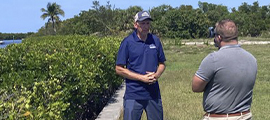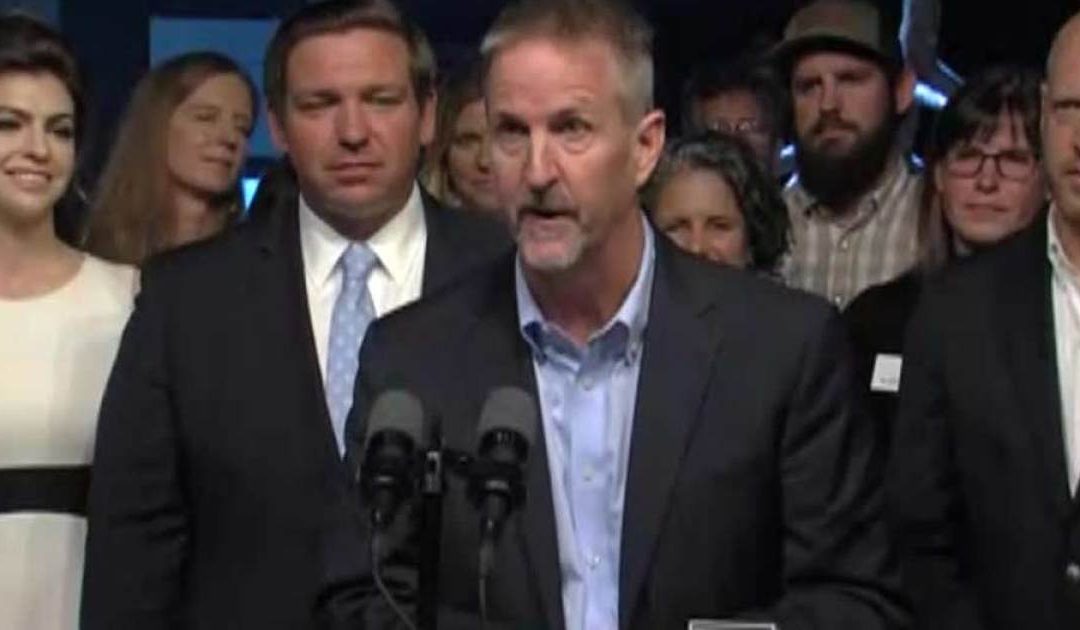The letter starts with:
“Dr. Frazer:
We write to you today regarding the following quote, as reported in the Herald-Tribune on February 4, 2020. “Frazer called SB 712 ‘One of the most environmentally progressive pieces of legislation that we’ve seen in over a decade. As a scientist that’s pretty rewarding to me.’”
The Florida Springs Council, Sierra Club Florida, and Waterkeepers Florida are concerned about the accuracy of this statement. As Florida’s first Chief Science Officer, it is essential that your statements to the public reflect the best understanding of environmental policy, especially when your credentials as a scientist are being used to bolster such remarks. Floridians must have faith that their Chief Science Officer is above politics and partisanship. Otherwise, we risk sacrificing the credibility of the important position with which you have been entrusted.
Our goal is to illustrate two issues of vital importance to Florida’s waters in the hope that you will correct the public record. First, the provisions in SB 712 are not capable of achieving the Total Maximum Daily Load (TMDL) water quality goals for the vast majority of Florida’s impaired waters. Second, within just the last year, not to mention decade, we have seen many pieces of legislation that are objectively more “environmentally progressive” than SB 712.”
The letter includes an explanation of why SB 712 is designed to fail, highlighting fundamental flaws in Florida’s Basin Management Action Plan (BMAP) program and the reliance on unverified and ineffective best management practices to address agricultural nutrient pollution. As the Department of Environmental Protection (DEP) recently admitted in a court filing “the record reflects that it is not unreasonable to question the utility of existing agricultural BMPs [Best Management Practices] as a means to achieve TMDL compliance in the spring basins.”
“SB 712 attempts to address the single greatest threat to Florida’s waters by inspections of practices that are already proven to fail, research projects that may or may not be funded from year to year, and requiring state agencies to cooperate (which they should have been doing all along). It is the policy equivalent of slapping a Band-Aid on a gunshot wound. It may not hurt, but it won’t really help. Without taking immediate and consequential action to address agricultural pollution, it is a very real possibility that the state will spend millions, or even billions, of taxpayer dollars on water quality projects without any significant benefit to water quality in many basins.”
The three water quality advocacy organizations, representing concerned citizens from the Panhandle to Florida Bay, conclude the letter with:
“While SB 712 may be well-intentioned, it is a deeply flawed piece of legislation, based on a broken Basin Management Action Plan program, which largely ignores the dominant source of pollution in many watersheds. It falls far short of the standard set by SB 1758 as filed last year and is less protective than the BMAPs for Outstanding Florida Springs which have already been shown to fail.
Dr. Frazer, we greatly appreciate your taking the time to consider this letter and the supporting documentation, which will be shared with the press. We would be happy to meet with you in the future for an in-depth discussion of Florida water policy. In the meantime, we await your public response to the concerns raised in this letter.”
On Monday, February 3, the Florida Springs Council, Florida Waterkeepers, and Sierra Club sent a letter to Senator Mayfield and other legislators asking for 18 amendments to SB 712 that would address the most serious flaws in the bill. Attachments to today’s letter today to the Chief Science Officer included a copy of the February 3 letter and amendments, a side-by-side comparison of the 2020 “Clean Waterways Act” SB 712 and the 2019 “Clean Waterways Act” SB 1758, and the Proposed Recommended Orders filed by DEP and Florida Springs Council members, respectively, from the recent administrative challenge of Outstanding Florida Springs BMAPs.
Review the Full Letter

























